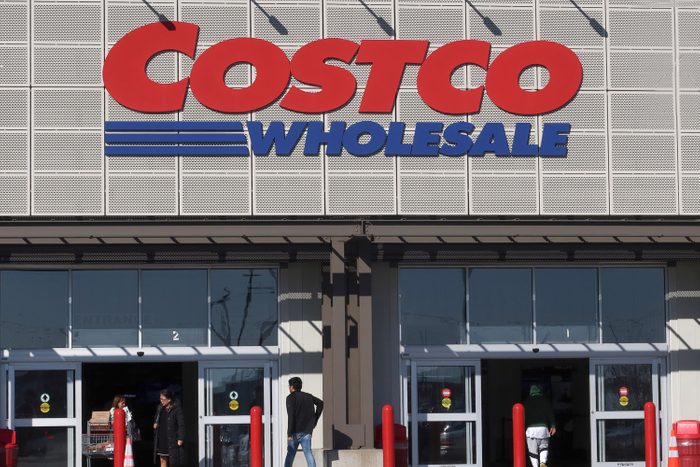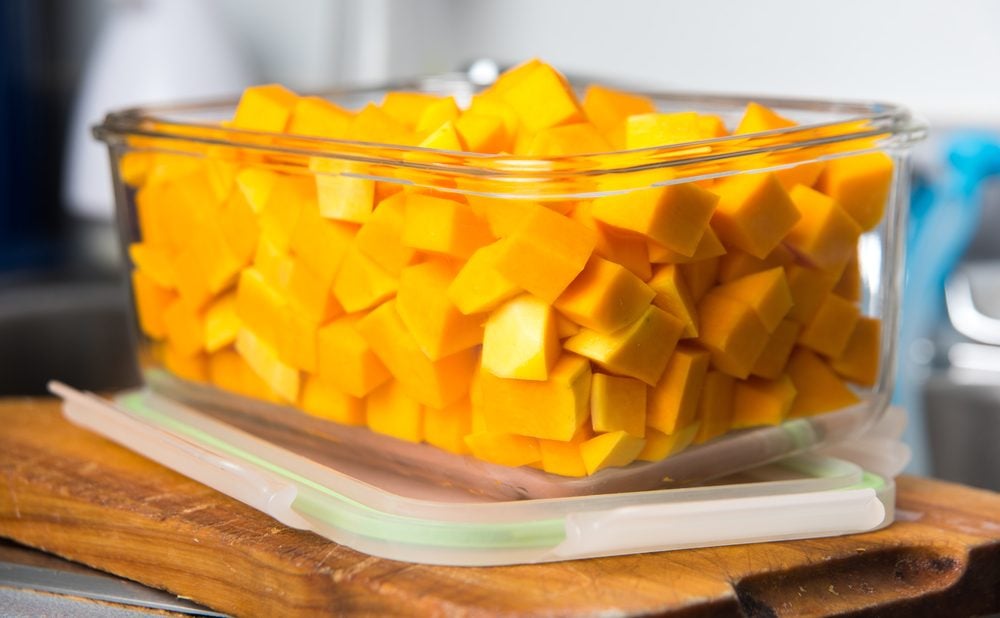Costco Stores in 4 States Have Recalled a Beloved Fall Vegetable, Says the FDA
Updated: Dec. 03, 2023

Now the FDA is announcing a health warning after routine product testing identified the presence of a concerning microorganism.
It’s the season for preparing fall squash in big batches, but on September 25, 2023, the Food and Drug Administration (FDA) issued a warning to consumers regarding a Costco fresh produce item that may be contaminated with E. coli.
Last week, Costco notified customers who purchased a specific batch of chopped butternut squash distributed by Safeway Fresh Foods of Vineland, NJ, that it could potentially contain a strain of E. coli bacteria.
The 32-ounce containers of chopped squash were available for purchase between September 7, 2023 and September 15, 2023 only at 13 Costco locations in Washington DC, Maryland, Pennsylvania, and Virginia, as outlined in the notice. If you bought butternut squash in any of these states with the brand name Sunnyside Farms, check your kitchen for Diced Organic Butternut Squash with item number #20522 and UPC 040232244124.
At press time, there have been no reported illnesses associated with this vegetable product. Instead, routine testing identified the presence of E. coli O45 bacteria in a single package. It’s worth noting that even though the product’s use-by date is September 19th, customers may have purchased packages and subsequently frozen them for future use.
If you did purchase this product, consider returning it to Costco for a refund. For more information, please contact Costco at 1-856-692-7200, Monday to Friday from 8 a.m. ET to 4 p.m. ET.

The risks of E. coli contamination
While E. coli is often discussed as a single type of organism, there are actually over 700 different types of E. coli strains, according to the Minnesota Department of Health. E. coli O157 is the strain most commonly associated with causing severe illness when consumed through contaminated food. E. coli O45 is a subtype that can also lead to foodborne illness, although it tends to be less severe than E. coli O157, typically causing symptoms like bloody diarrhea, as reported in the journal Microorganisms.
Football Food Safety: 5 Tips for Your Next Tailgate, From a Microbiology Expert
Here’s how vegetables get contaminated with E. coli
E. coli, which is present in human and animal feces, can be introduced anywhere along the line of production for food.
For instance, contaminated water may be used for irrigation before processing. In the case of pre-prepped chopped vegetables, improper cleaning of surfaces or even bacteria from a prep cook’s hands could introduce contamination.
The Centers for Disease Control and Prevention (CDC) recommends thorough cleanliness for everything that comes into contact with raw foods, as well as proper cooking and temperature maintenance. Additionally, storing raw meats separately from other groceries is essential to prevent cross-contamination.
- If You Have This Symptom, It Could Be the New COVID Variant, Says an Expert Doctor
- A Generous Mom Just Broke a World Record for the Most Breast Milk Ever Donated
- Sleeping for This Long Each Night May Reduce Heart Disease Risk, Says New Study
- This Kind of Exercise Can Reduce Men’s Cancer Risk, Says New Study



















